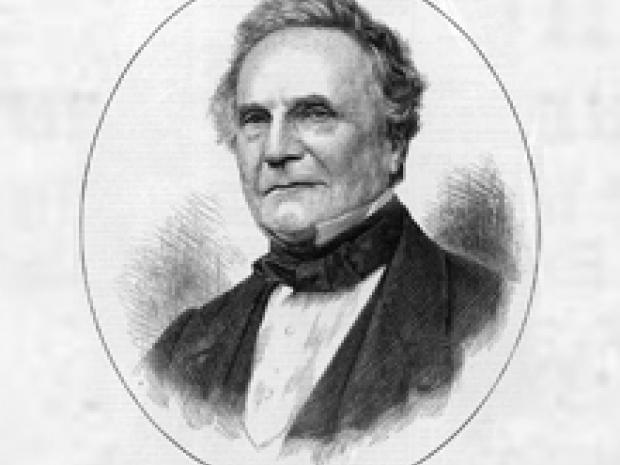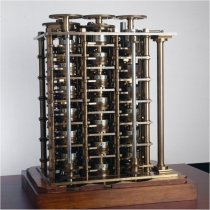Babbage and his Gem of all Machinery: The Quest to Build the First Computer in the 19th Century

Jointly sponsored by the Department of Computer Science and Engineering and by the department of Humanities and Social Sciences
Professor Laura J. Snyder
Department of Philosophy
St. John’s University
Abstract
 In 1812, Charles Babbage and three of his fellow students at Cambridge University — John Herschel, William Whewell, and Richard Jones — began to meet for “philosophical breakfasts” held Sunday mornings after the compulsory chapel service. At these meetings, the four resolved to bring about a scientific revolution, inspired by the 17th century scientific reformer Francis Bacon. Several key elements of this planned revolution came together in Charles Babbage’s decades-long quest to build the first computer: the need to highlight the value of precision in measurement and experiment, the initiation of public funding for science, and the directing of scientific innovation towards the common good. Although Babbage’s attempts to build the first computer ultimately failed, the four members of the “philosophical breakfast club” did succeed in bringing about a revolution in science: they created the modern professional scientific practitioner, who would come to be known by the term Whewell invented, the “scientist.”
In 1812, Charles Babbage and three of his fellow students at Cambridge University — John Herschel, William Whewell, and Richard Jones — began to meet for “philosophical breakfasts” held Sunday mornings after the compulsory chapel service. At these meetings, the four resolved to bring about a scientific revolution, inspired by the 17th century scientific reformer Francis Bacon. Several key elements of this planned revolution came together in Charles Babbage’s decades-long quest to build the first computer: the need to highlight the value of precision in measurement and experiment, the initiation of public funding for science, and the directing of scientific innovation towards the common good. Although Babbage’s attempts to build the first computer ultimately failed, the four members of the “philosophical breakfast club” did succeed in bringing about a revolution in science: they created the modern professional scientific practitioner, who would come to be known by the term Whewell invented, the “scientist.”
About the Speaker
Laura J. Snyder received her PhD in philosophy, with a certificate in history and philosophy of science, from The Johns Hopkins University. A faculty member at St. John's University, she has held visiting positions at the University of Chicago, University of Pittsburgh, University of Pennsylvania, and Cambridge University. Her work focuses on the ways in which science, and philosophical reflections on science, are embedded in their social, intellectual, cultural and political contexts. Snyder's work has been supported by grants from various sources, including the U.S. Fulbright Commission, the NEH, and the Mellon Foundation. She is past president of the International Society for the History and Philosophy of Science and co-founder of the associated journal. Snyder has published numerous articles and book chapters, and two books: Reforming Philosophy: A Victorian Debate On Science and Society (University of Chicago, 2006) and The Philosophical Breakfast Club: Four Remarkable Friends Who Transformed Science and Changed the World (Broadway Books/Crown, 2011).
For more information contact Professor Lisa Hellerstein (hstein@poly.edu) or Professor Myles Jackson (mjackson@poly.edu).

